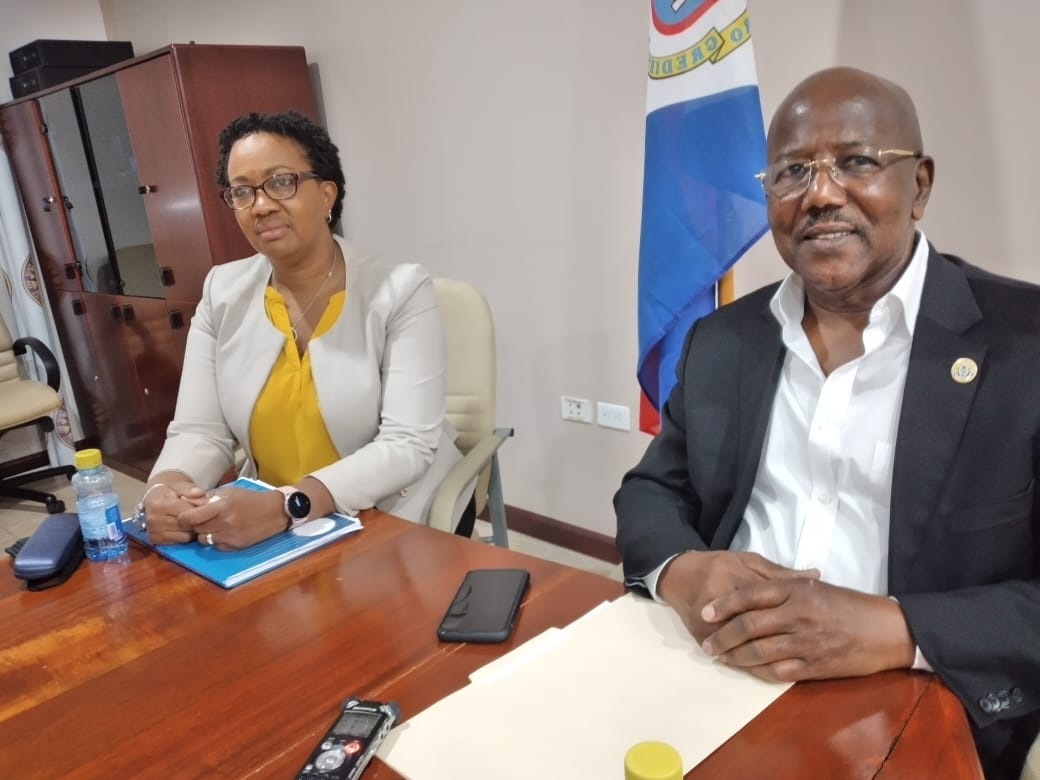Jacobs and Marlin defend position on draft COHO-law
PHILIPSBURG — “We can only come to consensus if the advice from the Kingdom Council of State is followed,” Prime Minister Silveria Jacobs said at a press conference hosted by the National Alliance about the status of the draft consensus kingdom law COHO (Caribbean Entity for Reform and Development).
The advice from the Kingdom Council of State points out that the authorities the draft law gives to the COHO are disproportionate and that the draft furthermore triggers questions about its compatibility with the Kingdom Charter. Jacobs and National Alliance faction leader William Marlin explained their position on the issue.
“We agree that certain reforms are necessary but we did not agree with the COHO-proposal,” Jacobs said, repeating an earlier statement that the draft is an “indecent proposal.”

She noted that the Council of Ministers has in the meantime approved an implementation agenda and that the executive branch will have to decide on a kingdom-level what the follow-up report after the advice from the Council of State will be. “We will only agree to something that does not infringe on local, Kingdom or international law.”
William Marlin took independent MP Christophe Emmanuel to task without mentioning his name. “Certain parliamentarians are trying to mislead the public by constantly issuing press releases bashing the prime minister, the government and the coalition, claiming to be standing alone and to be fighting for the people, and saying: I told you so. This is absolutely not true. He is not standing alone.”
Marlin referred to the motion the parliament unanimously approved in July 2020 that rejected the establishment of what was then still called the Caribbean Reform Entity. “What we accepted was to let the process continue to get liquidity support. The entity was introduced almost nine months ago and now the advice from the Council of State has vindicated St. Maarten, Aruba and Curacao.”
Marlin said that he felt “abused and blackmailed” by the proposal and likened it to the conditions the Netherlands imposed on financial support after Hurricane Irma in 2017. “The country was on its back and we were beaten into submission because they have the money.”
Marlin said that he fully supports the idea of technical and financial assistance. “But an entity that is reporting to the Dutch Minister of Home Affairs and Kingdom Relations, that is going too far.”
Training his guns once more on independent MP Emmanuel, Marlin said: “If the fourteen MPs had stood with the MP who claims to stand alone we would not have had liquidity support. The taxi drivers, the employees at stores and businesses, the unemployed, civil servants, police officers and teachers would not have received support. And Members of Parliament would not have received their salaries.”
Marlin acknowledged that the government has taken tough decisions that enable it to navigate through a difficult trajectory. He pointed out that the critical advice from the Council of State is “not a court decision” and that there will be “a Dutch-Caribbean standoff” if State Secretary Knops sticks to his guns.
Jacobs added that her government had agreed in December of last year to let the trajectory continue “knowing that there is a procedure whereby we have another opportunity when the advice from the Council of State comes in.”
The prime minister furthermore pointed out that the country package is based on a mutual agreement between St. Maarten and the Netherlands and that as such it does not fall under the COHO.
Jacobs carefully circumvented the question of whether the draft COHO-law violates the Kingdom Charter (a claim that is not part of the advice from the Council of State). Instead, she referred to it in a roundabout way: “The Kingdom Council of Ministers has to take a decision about liquidity support because of a petition that mentions that the COHO goes against the Kingdom Charter.”
Jacobs insisted that St. Maarten has lived up to its commitment by approving the implementation agenda before the April 1 deadline. “We have done everything that is feasible. We need the reforms and the funding, but not through an entity that infringes on our authority. We are looking to make the necessary changes.”


























